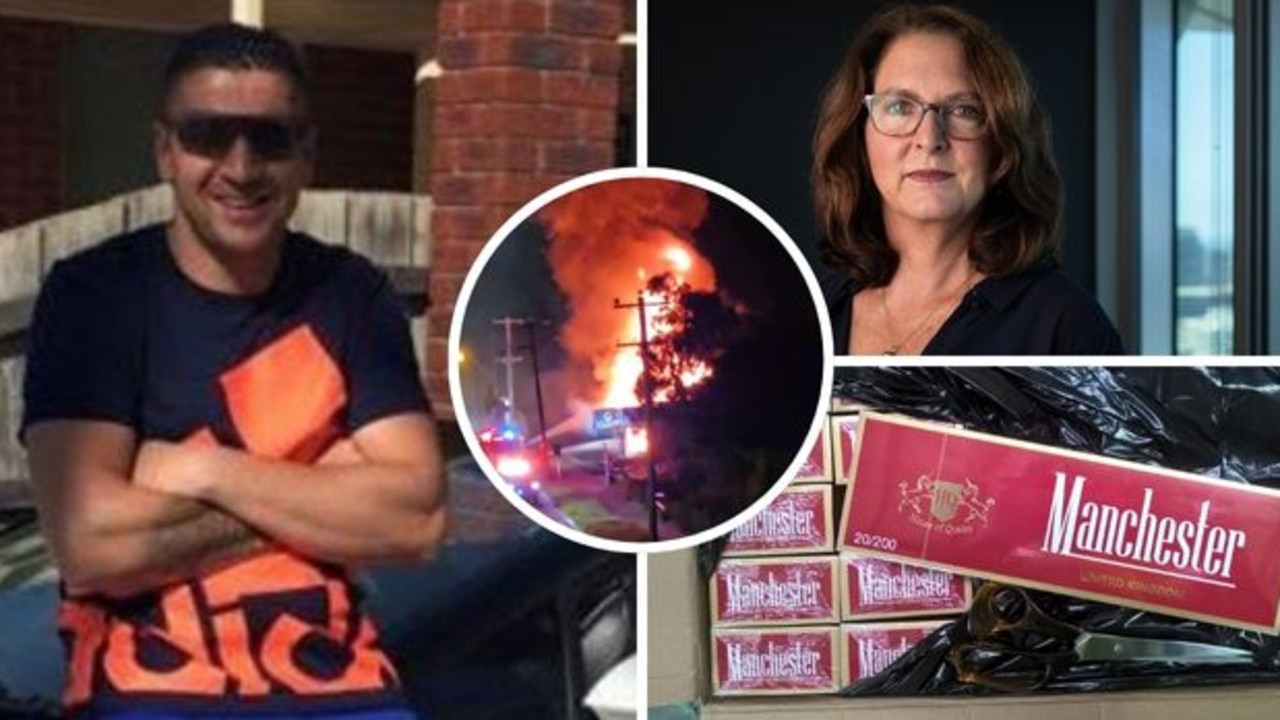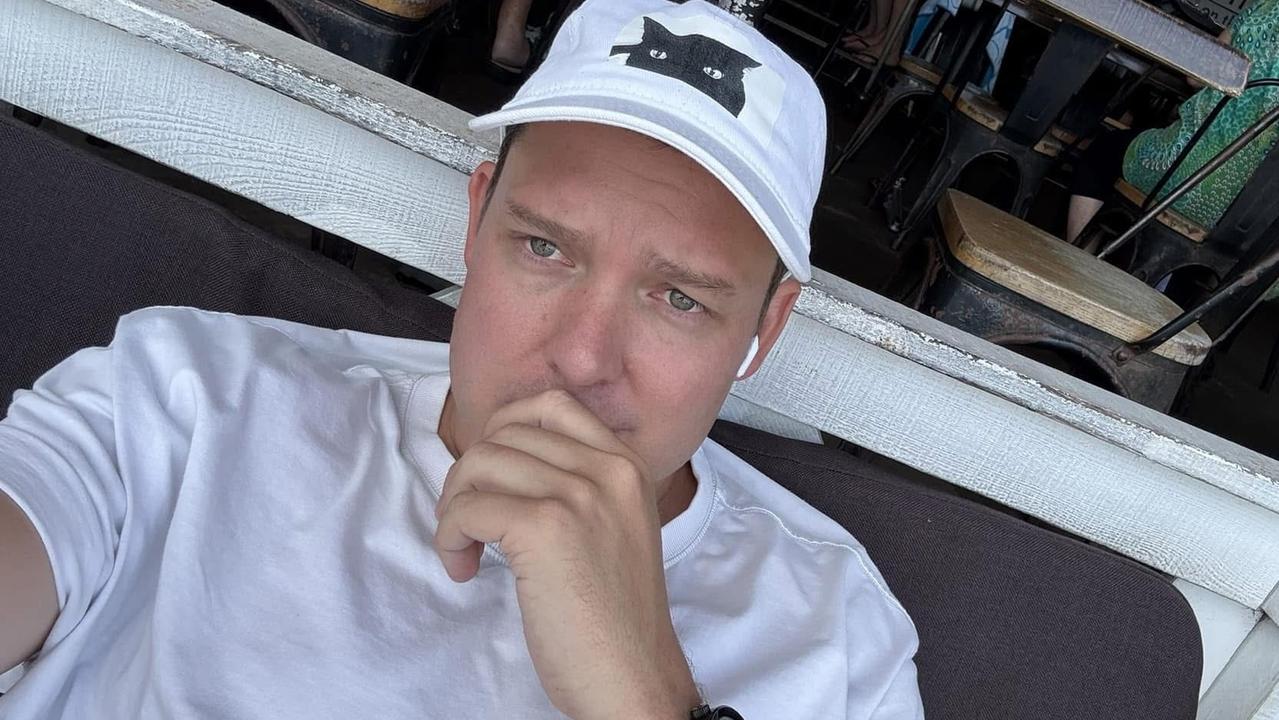Sharks, crocs and sewage pits: Police divers reveal their most heartbreaking jobs
Every day, police divers plunge into the depths of despair. These are their hardest and most heartbreaking jobs, and the weirdest things they’ve found.
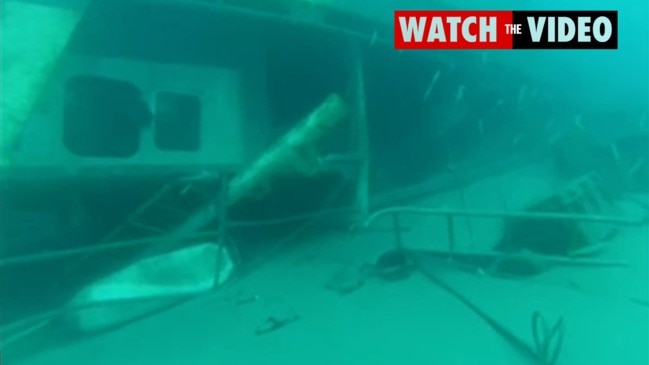
Police & Courts
Don't miss out on the headlines from Police & Courts. Followed categories will be added to My News.
Every day, police officers Michael Turner and James Hall dive into the depths of despair.
The duo are tasked to bring answers to families, closure to victims, and reprieve to communities, as they plunge into the vast waters across the state as part of the Queensland Police Service Dive Unit.
The job is gruelling- both on the body and mind, while the men at the helm of the squad are met with circumstances unimaginable to most.
In the often pitch black of the muddied shallows or deep abyss, they plunge fearlessly into waters to search for evidence, or bodies – in situations as varied as suicide, missing people or even foul play.
They work in waters where sharks, crocodiles, crabs and creepy-crawlies lurk, and are sometimes only centimetres from deadly animals.
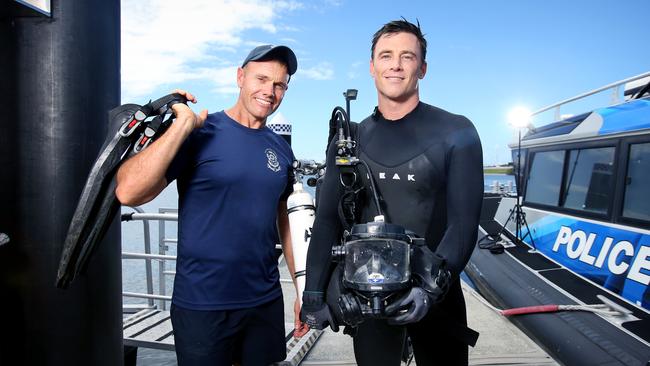
But the men say the worst, most traumatic moments do not come from the odd days marine life gets the upper hand. Rather, the days they wish to forget come in the form of tiny bodies, found deep beneath the surface.
“They’re so innocent and so young, the dives for kids are definitely the worst job, without a doubt,” Senior Constable James “Jimmy” Hall said.
“When you see family or parents, that’s just terrible. What do you say to those parents, what can you say? You can’t even imagine it. That’s a really hard day on the job.”
Just last week, a crew of men from the squad – many fathers themselves – were tasked to find the little lifeless body of two-year-old Ruby Gulliver, who had tragically gone missing at a Tara property in Queensland’s Western Downs.
It’s moments when the crew reunite loved ones with the precious body of a family member that will permanently occupy space in Senior Constable Michael Turner’s mind, including a job early in his diving career.
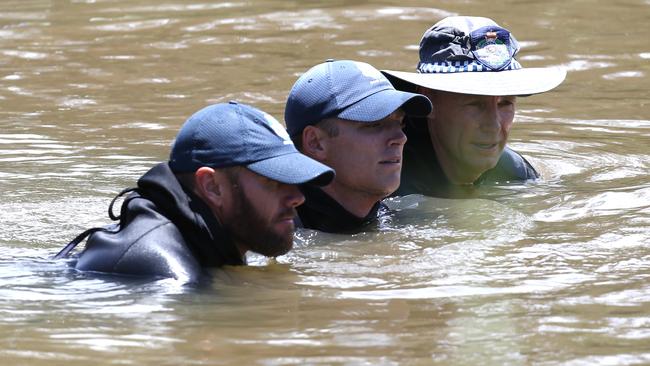
Snr cnst Turner recalled the heartwrenching day he found the body of a missing teen who had failed to resurface after a dip at the Sunshine Coast’s Wappa Falls in 2010.
“It was just a normal job but it was once we actually located him and had him in the bag and were starting to carry him up that it turned into one of the most emotional jobs in my diving career,” he said.
“One of the officers there said ‘the dad wants to come see him’. So we lay him down and tried our hardest to clean him up a bit. And then, the dad came. (He) pretty much lay in the body bag with him, wailing and saying ‘you’re so young, why’d you do it?”
Through the dive squad’s tragic tales of loss, they also hold close moments of humour and hope, including one in particular that can best be described as a miracle.
Snr cnst Turner recalled the special moment the team located Chinese student Yang Chen after five nights in the elements of the flooded Tallebudgera Valley early last year. The rewarding find has been the only one of its kind for the officer, who joined the dive squad over a decade ago.
“When we heard her, then saw her alive, it was a shock,” he said.
“After the initial shock, we were all obviously very happy to see her alive because we didn’t expect that, unfortunately that’s not the mindset we go there with. That’s (not) what we’d been tasked to do. It’s the only time I’ve found someone alive.”
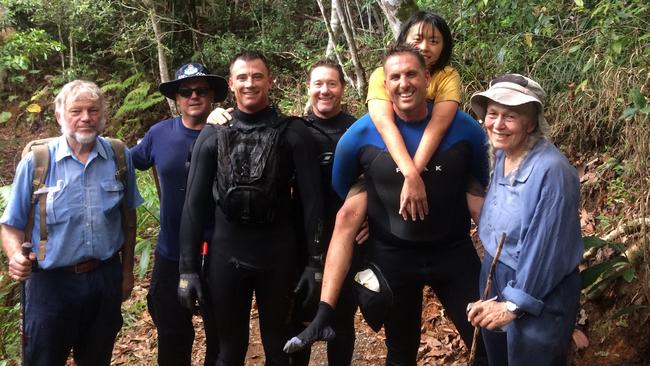
The Gold Coast job was in stark contrast to the tragic turn of events for six fishermen who, in 2017, died when the Dianne trawler sank late at night while in rough seas off the coast of 1770. There was only one survivor.
A crew of divers, including Snr Cnst Hall plunged 30 metres below the surface, where he would not only find the overturned vessel, but the bodies of skipper Ben Leahy and Adam Hoffman.
“It was the hardest, technically most difficult job I’ve ever done,” Snr cnst Hall said.
“We only got two of the boys out but we were hoping to find all the guys in the cabin. I remember seeing a foot and thinking, ‘yep, we’re on, hopefully they’ll all be here.’ But sadly
not the case – that part was hard.”
There’s also the day in 2019 the team were tasked with retrieving the body of murdered man Jason Guise from a septic tank in Brisbane’s east.
“That was definitely the worst gig I’ve done,” Snr cnst Hall said.
“As I’m being lowered down I’m just thinking, ‘I can’t believe I’m being lowered
into a sewage pit’.”
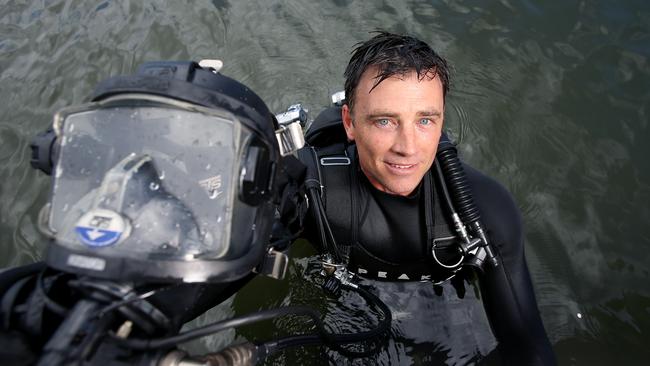
Hard jobs come around frequently for the men, who lean on each other in times of sadness, bicker in times of stress, and laugh together at the moments that seem all too far fetched.
The team’s camaraderie is evident when they tell tales of their dives, while their pride is again reflected on the walls of their tiny Port of Brisbane office, where newspaper articles and random mementos they’ve collected in waters hang on the walls.
They tell tales of the day they found a car – a time capsule of yesteryear- while diving in a dam south of Gympie.
“When we got into it, we found cassette, an old Nokia phone from the era, maybe ‘07 or ‘08,” Snr cnst Hall said, before later joking: “It still had half charge.”
Or the time they found a safe with an object too crude to print inside.
Through the awful, heartbreaking jobs and the unimaginable moments that are survived only through unwavering determination, the men of the dive squad offer a service to the community like no other.
“To do what we do, we’re a unique sort of bunch,” Snr cnst Turner said.
“We get to travel, and better yet, we don’t have to do paperwork.
“But ultimately we get to help grieving families wherever we can, to be back with their loved ones.
“That’s the reward of the job.”

